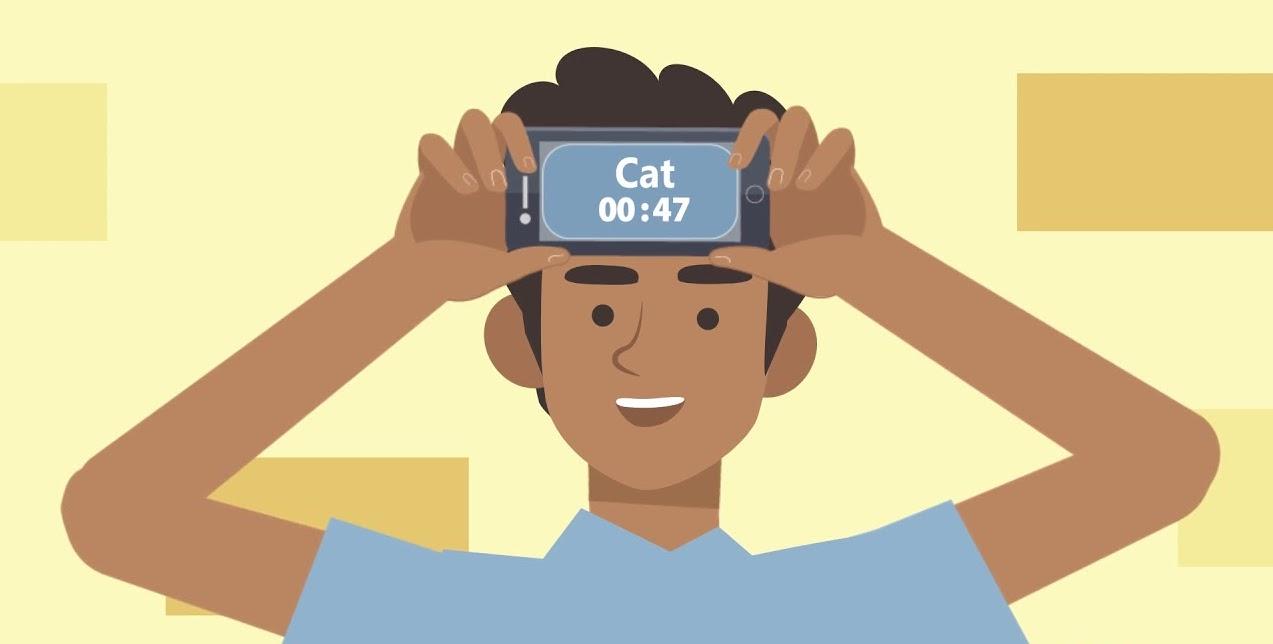This last weekend, I went to Great America with some friends and screamed my face off on some roller coasters. Amusement parks are great, but there are some non-ideal aspects that you can’t get around: overpriced food, noisy kids, and — worst of all — long lines. (I waited 90 minutes for a 45 second ride…)
To pass the time in line, my friends and I played a mobile phone game called Heads Up by Ellen DeGeneres and Warner Bros. One person in the group (the guesser) starts the timed round by holding the phone to their forehead so that they can’t see the word. The rest of the group members (the actors) verbally or physically describe the word without actually saying it. To move along to the next word, the guesser must either A) have guessed the word correctly or B) chosen to pass on the word. Within 1 minute, the players must collectively try to get through as many words as possible. Essentially, a digital version of charades x Taboo.
Aesthetics: Why Play This?
For starters, I definitely experienced challenge as both the guesser and the actor. I faced obstacles as I tried to describe or act the word without actually saying it, and this constraint allowed me to experienced a degree of fun in frustration: sentiments of ‘Aw, if only I could just use the word!’ or ‘What the heck am I supposed to say about this one?’
The type fun at the heart of the game is fellowship: just being with your friends and watching them act out stupid things or yell a bunch of nonsense in your face causes uproars of laughter. This was really why we started the game at all — we were waiting in a long line and wanted to have fun by being around each other.
Dynamics and Mechanics
The most pressing dynamic was that of time pressure: each round is only a minute long, and the guessers can constantly see the time ticking down as they furiously blurt things out to the guesser. The mechanic we have to thank for the pressure we felt is the rule itself that sets the round time and the timer built into the game. We want to meet deadlines and feel and instinctual sense of urgency when we see “10… 9… 8… … 3… 2… 1,” which made the game all the more fun as our desperation and incoherency grew in the final seconds of each round.
Another dynamic is sharing information. It’s essential for actors to communicate information to the guesser so that they can guess what the word is. In Heads Up, they can do this through the mechanics of verbally describing and physically acting something out. As the guesser, it’s hilarious to see the wild things people do to describe a word without using it.
Finally you can change categories — from “Pop Culture” to “Film & Television” to keep things interesting and play to guessers’ strengths (or weaknesses…). It was overall a splendid and silly way to pass the time 🙂



